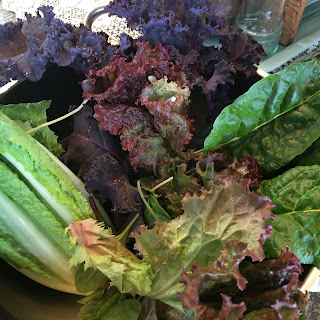Have you ever ate a huge red beefsteak tomato right off the vine? There is no comparison between that and a half-ripe pale red tomato from the supermarket in the middle of winter. There is something about seasonal eating that seems natural and logical. Most people would agree that a comforting stew full of root vegetables, like carrots, beets, sweet potatoes and onions goes better on a cold Winter or Fall evening than a big garden salad with tomatoes and cucumbers. There is evidence that your body gets more out of certain fruits and vegetables at certain times of the year. Your body needs more beta-carotene during the winter when there is a shorter amount of sunlight. Carrots, sweet potatoes, etc help with this, all which are growing in this season. Same goes for fruits like watermelon, berries, cucumbers,etc which are high in fluids, in which we need more during the hot summer months. Nature has it together when it comes to knowing what we need with each season. When foods are foods are picked at the peak of ripeness, when they are meant to be eaten, they taste different. Seasonal eating brings the full flavor of fresh whole foods back to your diet. We are blessed to have access to a couple of local farms in our area. They have been producing excellent vegetables for over one hundred years! Their produce is picked fresh and stays fresh until completely consumed. No waste! What happens to your bagged greens mixed from the supermarket after only a few days?

Here's a few reasons for eating seasonal:
*Seasonal foods are often less expensive. It takes a lot of energy and resources to manage, package and transport foods out of season. Local framers markets are full of fresh fruits and vegetables and the cost is better.
*Seasonal eating is better for the environment. Foods grown out of season take a tremendous amount of resources, by recreating natural growing conditions or tremendous amount of fossil fuel in transporting foods from other in season areas around the world.
*Seasonal foods can be more nutritious. For foods to be grown out of season elsewhere in the world to be shipped to you, they must be picked green, before their peak ripeness and fully matured. Unless they are picked at ripeness and then frozen they lose most of their nutritional value.
Frozen or Fresh?
*Seasonal eating adds variety to your diet. Variety is the foundation of a healthy diet. By eating seasonally you can break the habit of eating the same food choices. Therefore, getting a more balanced nutritional meal. The
Seasonal Food Guide can help you find whats in season in your area.
Eat local. Eat what's in season. Eat organic.
Have a great week.
Be kind.
Judd

